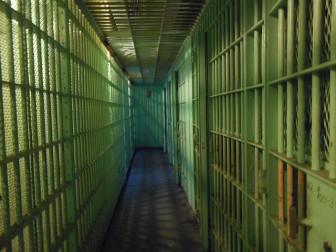According to a new study, some county jails in Wisconsin are charging significantly higher than the national average for inmates to make phone calls.
The study, conducted by the Massachusetts-based nonprofit Prison Policy Initiative, was released in February 2019. According to their website, the Prison Policy Initiative was founded in 2001 and aims to research and publicize how mass incarceration affects society.
According to the report, jails in the state of Wisconsin average $7.98 per 15-minute phone call. This is almost one-and-a-half times as much as the nationwide average of approximately $5.61. The most expensive calls come from the Columbia County jail, where a 15-minute phone call costs $21.97.
The study suggests that rates are not flat — that is, there is typically not a per-minute fee. As such, the fee for a one-minute phone call from Columbia County jail is priced at $5.31. But despite having the highest listed price for a 15-minute call in the state of Wisconsin, other county jails charge higher fees for the first minute.
According to the study, the Marathon County jail charges $5.37 for the first minute, Polk County jail charges $5.53, Price County charges $5.61 and Iron County charges $5.80.
Wanda Bertram, communications strategist at the Prison Policy Initiative, discussed how these rates are determined.
“The jail phone industry is broken largely because jail phone companies compete for monopolies,” Bertram said. “They do this by sharing revenue with the facilities themselves. The really high rates in Wisconsin jails, when brokered by these companies, happen when they promise to kick back some [revenue] to jail facilities. That means part of the contracting process is distorted by collusion between jail phone companies and facilities.”
Securus Technologies Inc., a corporation that offers messaging, jail voicemail, video call and money transfer services, has previously received attention for a variety of issues.
In May 2018, Sen. Ron Wyden-D, Oregon, publicized a letter he had written to Ajit Pai, chairman of the Federal Communications Commission. The letter states that Wyden had discovered that Securus purchased real-time location information from major wireless carriers and made it available to the government via a portal.
To access the information, Wyden said that correctional officers enter a number into a Securus portal, upload documents purporting permission to access the data and are then free to obtain the data. Wyden claimed that top Securus officials confirmed that no steps are taken to verify the documentation giving permission.
In May 2018, a New York Times article discussed a former sheriff of Mississippi County, Missouri that utilized this Securus service to track other officers cell phones without court orders, according to charges filed against him. It is alleged that between 2014-17, the service was used at least 11 times to track a judge and members of the State Highway Patrol.
The NYT article also added that the tracking technology works even if location services are switched off. This is achieved by using cell phone towers to triangulate the phone’s location.
A March 2015 New York Times article added that the prison phone system is a $1.2 billion-a-year industry. The article discussed the “concession fees” mentioned by Bertram, or the commissions paid by the phone companies to incarceration systems in exchange for exclusive contracts. In 2013, $460 million in concession fees was paid, according to the FCC.
Kenneth Streit, clinical associate professor emeritus at the University of Wisconsin Law School, suggested that these kickbacks are the logical reason for these contracts.
“Historically, sheriffs received much of their personal income from jails,” Streit said. “For example, the Sheriff provided the food and charged the inmate or county per diem rates. This has mainly disappeared, but smaller counties often underfund the jail with the expectation that vendors will provide upfront fees for exclusive contracts. The major national phone vendors generally do PR … about how important security is and why exclusive contracts are vital. But there’s no real security basis for exclusive contracts other than the jail gets a kickback and the vendor gets to charge monopoly rates.”
The PPI study also discussed comparative rates between local jails and state prisons. The study found that the average phone call from a local jail in Wisconsin will cost almost four-and-a-half times as much as a call of the same length from a Wisconsin prison.
According to the FCC, the most recent legal action was in August 2016, when new rates set caps for local and long-distance inmate calling. The new rate caps were scheduled to take effect for prisons in December 2016 and for jails in March 2017.
But those rates were stayed by court order, pending judicial review. As such, interim rate caps are currently in place and those caps only apply to interstate long-distance calls. Those rates are 21 cents a minute for debit/prepaid calls, and 25 cents a minute for collect calls.


